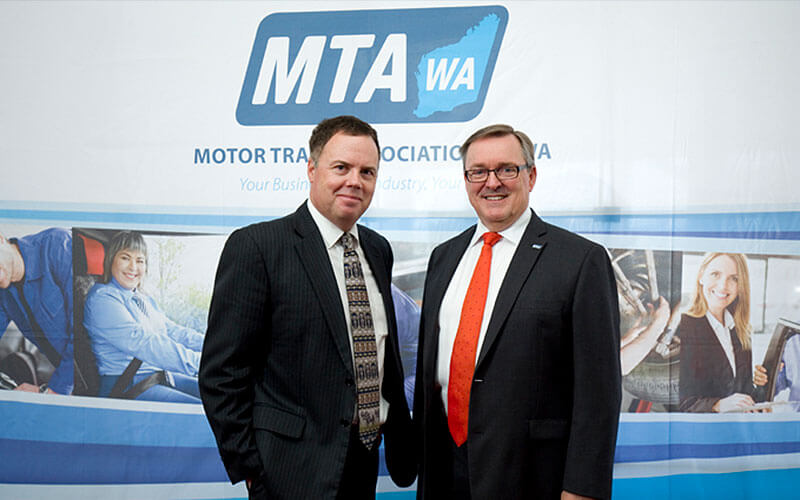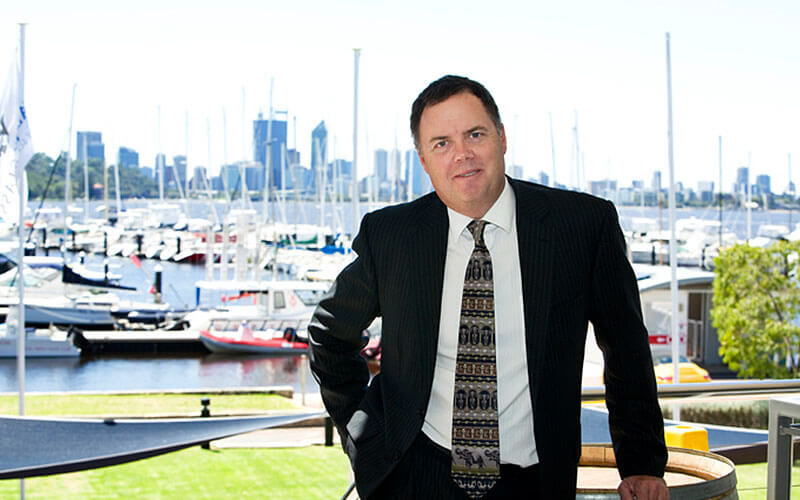Speaking at a Perth forum to detail its new-car retailing issues paper, the ACCC’s deputy chair Dr Michael Schaper said his commission had received 1300 contacts from consumers with vehicle issues in the 2015-16 financial year that saw vehicles sales of about 1.1 million.
The forum was conducted by the Motor Trade Association of Western Australia at a lunch last week.
Questioned by a member of the audience, who said that the level of complaints was “infinitesimal” compared with the volume of new cars sold and the number of service jobs carried out, Dr Schaper agreed it was a “small number in the scheme of things”.
“But we get a very wide scatter of complaints from the automotive industry,” he said.
“It’s very rare for us to see one industry get a dozen complaints a year and then you get 1300 for one industry. That is, for our agency, quite a lot.”
Dr Schaper said the 1300 complaints to the ACCC did not take into account that considerably more complaints were made to state consumer departments.
“I’d suggest that is where the vast majority of complaints go to – consumer affairs – because consumers do not usually come to the ACCC with issues,” he said.
But he said it was “no secret” that consumers raise a lot of issues with the commission.
“From Choice magazine, two-thirds of consumers in its survey – the only one we have access to – within five years have some sort of problem with a new car. Admittedly, some are minor but a hefty proportion are still regarded as major problems.

ACCC deputy chair Michael Schaper (left) with MTA WA CEO Stephen Moir
“If it is a major problem, a fundamental problem, the consumer may be entitled to a replacement or a repair or a refund. If it’s a small item, like a broken clock, the rules are a bit different and often lead to a replacement of the item.”
Dr Schaper said it was also important to recognise that vehicles were the most recalled product safety item for 2015-16 with 182 recalls, up from 169 in the previous year.
The complaints were the key to the ACCC, in June last year, launching its New Car Retailing Industry issues paper that will be shown as a draft report in the middle of this year.
The study focuses on competition and consumer issues including warranties and guarantees, fuel consumption and emission claims, performance issues, servicing and access to repair and service data.
“There are a series of issues from consumer rights through to products that motivated us to put together a market study,” Dr Schaper said.
“It’s the ACCC looking at the (automotive) industry to better see how it works. The study is not based just on complaints and I see that it could lead to changes in the law.
“We have had to limit the study to the issues around new cars because it’s simply beyond our capabilities to include the whole automotive industry.
“We also have teams looking at other industries – for example, the beef industry and telecommunications.
“Whatever we come up with is not binding on the government at all. It’s our view. We have put the discussion paper out and conducted a survey with 280 responses from the industry – far more than from consumers – and we have had an all-day forum with participants from around Australia.
“We will now put out a draft report in the middle of the year and that will give us bearings – where we are headed – and allows further input from the industry. A vocal industry is very important for us to give us input.”
The ACCC study is broadly divided into five segments but Dr Schaper said the most important was about competition.
“Our job is not necessarily about protecting the people in the industry but to ensure anyone with a viable business model to complete on their own merits,” he said.
“So we want to know if competition is shrinking – because that’s very important to us – or is it closing down completely. You can take a parallel with Google, for example, that has reached a certain size and it is now very difficult for other players to enter the market.

ACCC deputy chair Michael Schaper in Perth
“These trends are very important.”
The “consumer experience” is another important segment, he said.
Dr Schaper said that consumer law says that if a consumer has a problem with the car then it goes back to the dealer.
“It doesn’t go back to the manufacturer or the manufacturer’s agent. We know – because it has been raised repeatedly – that there’s a big issue with a manufacturer or the agent putting it back to the dealer and making the dealer fix the problem.
“Consumers also need to understand about buying something that does not perform as the manufacturer has stated – Volkswagen for example – and that can include fuel consumption and emissions and performance.”
Also being investigated will be consumers being forced to have a replacement or refund issued but then have to sign a confidentiality clause.
“That’s illegal as far as we are concerned,” Dr Schaper said.
“You can’t say to someone ‘you have a right to repair but only if you don’t tell anyone about it’ – that’s systematic of some of the complaints.”
The ACCC will also look at service arrangements; looking at allegations about (alleged) anti-competitive behaviour by some businesses in prohibiting consumers using independent repairers and in limiting access to repair data to those repairers.
“As cars become more like rocket ships in technological sophistication, it can squeeze out independent repairers,” Dr Schaper said.
“We will also look at one fascinating aspect of the repair business that was revealed at the Nebraska congress on the right to repair law.”
Nebraska is poised to be the second US state after Massachusetts to allow independent repairers access to OEM data under a proposed “Fair Repair” bill that is before state congress. It centres on farmers wanting the ability to choose a repairer for speedy repair work rather than take their machinery to the manufacturer’s agent.
“It is fascinating because it’s not just about parts – it’s about the consumer buying the right to use the product,” he said.
“It is a license, not a purchase. You have the right to use the product but you don’t actually own it. We have seen this before with companies such as Soda Stream and with many mobile phones. I think we have to be ready for this business model to be rolled out more and more.”
By Neil Dowling













 Read More: Related articles
Read More: Related articles

